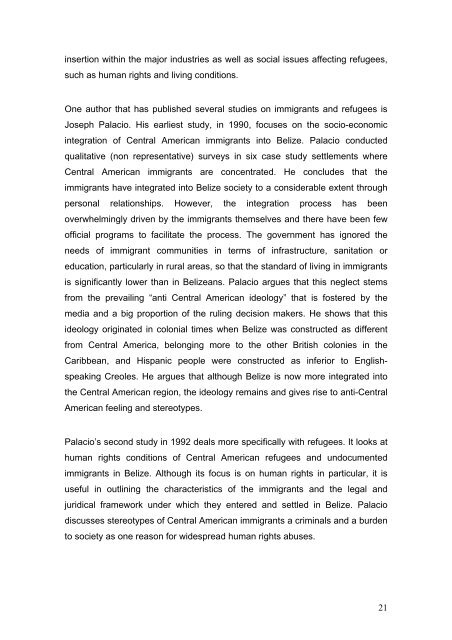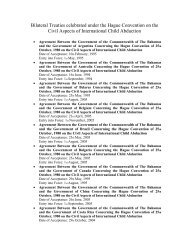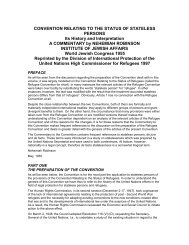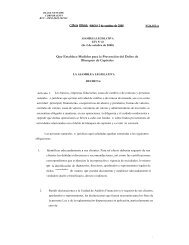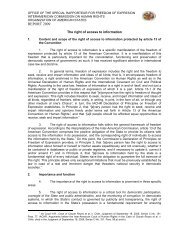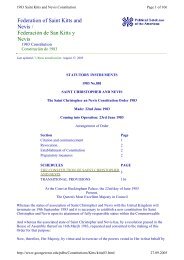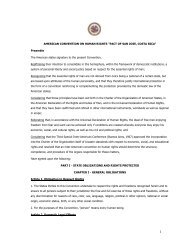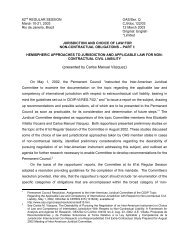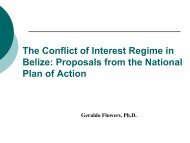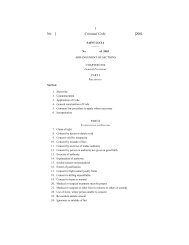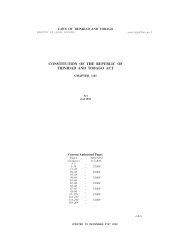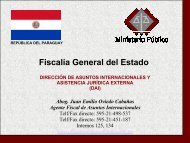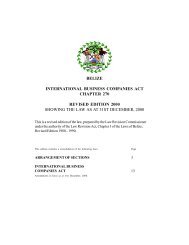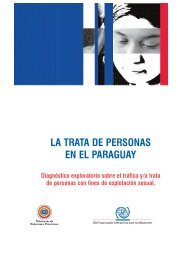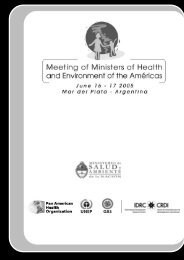TRAFFICKING OF PERSONS IN BELIZE - OAS
TRAFFICKING OF PERSONS IN BELIZE - OAS
TRAFFICKING OF PERSONS IN BELIZE - OAS
You also want an ePaper? Increase the reach of your titles
YUMPU automatically turns print PDFs into web optimized ePapers that Google loves.
insertion within the major industries as well as social issues affecting refugees,<br />
such as human rights and living conditions.<br />
One author that has published several studies on immigrants and refugees is<br />
Joseph Palacio. His earliest study, in 1990, focuses on the socio-economic<br />
integration of Central American immigrants into Belize. Palacio conducted<br />
qualitative (non representative) surveys in six case study settlements where<br />
Central American immigrants are concentrated. He concludes that the<br />
immigrants have integrated into Belize society to a considerable extent through<br />
personal relationships. However, the integration process has been<br />
overwhelmingly driven by the immigrants themselves and there have been few<br />
official programs to facilitate the process. The government has ignored the<br />
needs of immigrant communities in terms of infrastructure, sanitation or<br />
education, particularly in rural areas, so that the standard of living in immigrants<br />
is significantly lower than in Belizeans. Palacio argues that this neglect stems<br />
from the prevailing “anti Central American ideology” that is fostered by the<br />
media and a big proportion of the ruling decision makers. He shows that this<br />
ideology originated in colonial times when Belize was constructed as different<br />
from Central America, belonging more to the other British colonies in the<br />
Caribbean, and Hispanic people were constructed as inferior to Englishspeaking<br />
Creoles. He argues that although Belize is now more integrated into<br />
the Central American region, the ideology remains and gives rise to anti-Central<br />
American feeling and stereotypes.<br />
Palacio’s second study in 1992 deals more specifically with refugees. It looks at<br />
human rights conditions of Central American refugees and undocumented<br />
immigrants in Belize. Although its focus is on human rights in particular, it is<br />
useful in outlining the characteristics of the immigrants and the legal and<br />
juridical framework under which they entered and settled in Belize. Palacio<br />
discusses stereotypes of Central American immigrants a criminals and a burden<br />
to society as one reason for widespread human rights abuses.<br />
21


